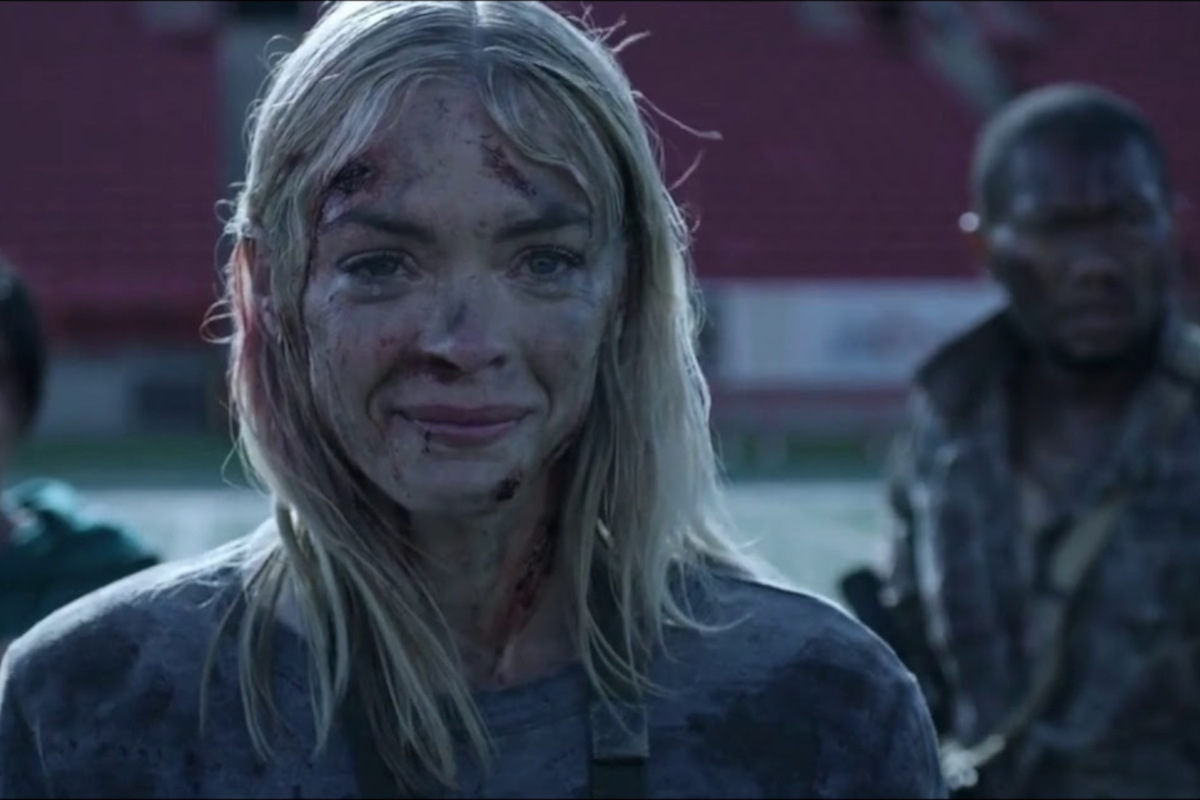One of my favorite parts about not being up-to-date on the latest Netflix shows is that moment when I describe a series to my friends who already saw it several months prior.
“Hey, did you see that zombie show on Netflix? The one where NO ONE KNOWS THAT YOU’RE SUPPOSED TO SHOOT ZOMBIES IN THE HEAD?!”
“Yeah, welcome to last year, buddy.”
Also, I can’t be the only person who confused Black Summer with Black Mirror, right? Every time a friend asked if I saw Black Summer, I’d be right there with something embarrassing like, “Yeah, I loved it! And they really outdid themselves with Bandersnatch, too.” Insert blank stares.
So here I am, coming down from that lovely Netflix binge-buzz and I just want to share my thoughts on a series that I think needs another look. Whether you’ve seen it before or are one of the five people who didn’t (but think they did?), this one’s for you.
Black Summer is the “spin-off prequel” to the popular (yet somehow canceled) Z Nation that was a hit on SyFy for five seasons. The series stars none of the same cast as Z Nation, yet is meant to be a more serious and much scarier version of Z Nation that takes place in the very early days of the same universe’s zombie outbreak.
I admit that I came into this series as a skeptic. I’m burning out hard on the whole zombie thing, especially when seemingly promising movies and TV shows are dragging the genre along to make a few extra bucks (not a fan of The Walking Dead, Shawn?), but I still can’t let any post-apocalyptic show slip by me.
And I have to say, I was actually pleasantly surprised by the way Black Summer began. Episode 1 had me glued to my seat, and despite a few early signs that the show’s cinematography would disappoint me later in the season, I was hooked. I described the first episode to my wife as “the movie Crash mixed with the beginning of Fallout 4.” She shrugged.
But I soon found a few cracks in the dam as subsequent episodes quickly dwindled into this strange brew of empty, hurried character developments and a climax that had me yelling “C’mon, really?!” at my screen much more than usual.

But let me first back up a bit and tell you about the parts I DID enjoy, such as the way the first episode introduced each character with creative visual overlaps between storylines. These overlaps were subtle at first, but became more obvious as we all figured things out together. And I loved that. I really enjoy when a show can anticipate its audience like that.
I also appreciate no subtitles for the character Ooh “Sun” Kyungsun. While many felt that the lack of subtitles was an oversight, I felt that it effectively added another layer of confusion to the already hectic atmosphere in that first episode. That said, I was fairly annoyed when she could suddenly understand complex English sentences only a couple hours later (in later episodes).
But once Sun’s Episode 7 monologue was translated on the trusty internet, it’s really fascinating to think that possibly the most complex and interesting backstory was hidden behind a language barrier for English speakers. This is how we used to play adventure role-playing games in the old days, kids: through research and discovery. It was an exciting Easter Egg that I wish more people appreciated.
And the action scenes were not lacking at all. At first I was annoyed at the fact that not one person (except Sun, although we didn’t know it at the time) knew to shoot a zombie in the head to kill it, but it really added a bit of anxious energy to the show. So between that and a few really well-filmed chase scenes with both cars and zombies, I would say that those action sequences really made this series.
Outside of that, though, Black Summer’s plot was far from innovative or complex in any way — so much so that I actually thought there was some reverse psychology going on. “There’s no way this show can just be about a mom separated from her daughter and she spends the remainder of the series looking for said daughter,” I convinced myself. Well — spoiler alert — it is.
A few backstories made a passing attempt at complexity, but were about as painfully obvious as a dad joke. The origin of Spears’ name, the occupants of the school, William’s ultimatum regarding Sun in the diner, the entirety of Episode 6… I think these are all meant to be surprises, but they play out exactly the way you’d expect in the most basic way.
Throughout all of the painfully long street strolling scenes, the head-scratching plot holes, and the continuity errors that defied science (Why didn’t the van’s airbags go off? Why didn’t the soldiers turn into undead in the tunnel? Shotgun recoil is a thing, C’mon!), I did enjoy Black Summer for what it is. I can’t honestly sit here and knock it for not being Citizen Kane or Momento, but sometimes I just think it would be great to be pleasantly surprised by something that is initially disguised as cheap zombie action. And while Black Summer started out giving me a tingle of promise for that pleasant surprise, it didn’t deliver in the end.
So if you enjoy a good old-fashioned fast-running zombie flick, and you don’t care about knowing the main characters on a deeper level, you’ll enjoy Black Summer. If you don’t mind trading a complex plot for gore and non-stop action, then you’ll enjoy Black Summer. Otherwise, don’t expect much more than that.

